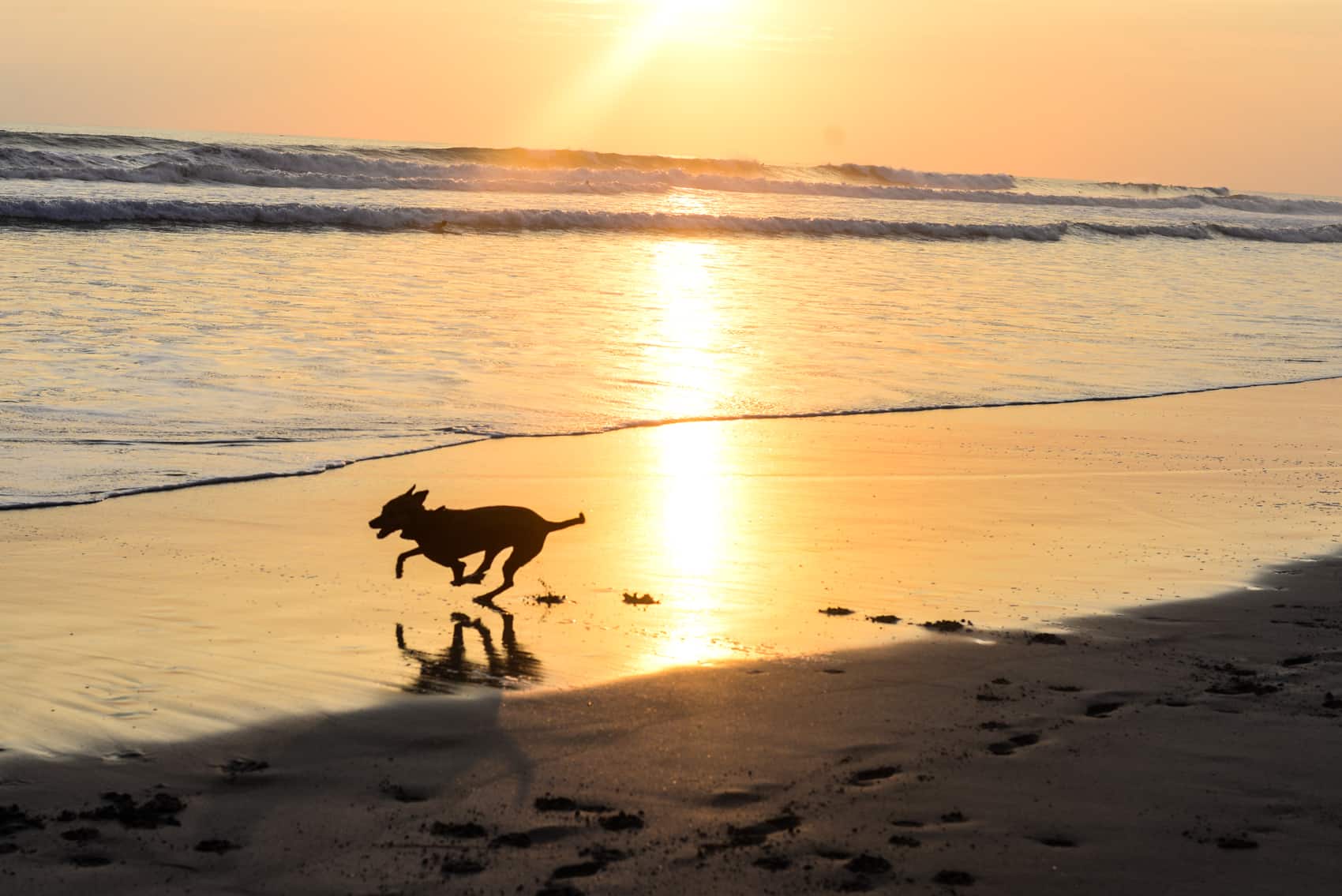More than half of Costa Rican households have one or two dogs, but not all dog owners know how to properly care for their pets, a recent study found. The study on responsible pet ownership was released earlier this month by the nonprofit World Animal Protection.
The group surveyed dog owners and asked them questions about feeding, medical care and exercise, among other data points. The study concluded that Ticos generally do a good job feeding their dogs, taking them to the vet when needed and treating them with love. But they lag in some other areas that experts say can be unhealthy and even harmful for dogs.
Dogs in numbers
Based on survey numbers, World Animal Protection estimates that there are 1.3 million dogs with owners in Costa Rica. Most dog owners, 45 percent, have mixed breed dogs, or zaguates, as Ticos call them. Miniature poodle, Chihuahua, American Staffordshire terrier and miniature schnauzer are favorite breeds among those who know their dog’s breed.
Nearly half of those surveyed said they have a dog to keep them company and for protection. Ten percent said they have a dog strictly to provide security. The study concluded that Ticos generally have a deep affection for their dogs. Ticos scored well in feeding habits: two-thirds of owners said they give their pet dog food. Almost 20 percent said their dog eats a combination of leftovers and dog food.
Melania Gamboa, manager of World Animal Protection’s veterinary programs, said the study shows that Ticos love their dogs just as much as people living in more developed countries, but may not be as thorough with their dogs’ care. For example, she said, nearly eight in 10 owners surveyed said they never collect their dog’s poop. Most dogs do their business in their owners’ backyard or garden, but 12 percent leave their mess on streets and in other public places.
Besides sanitation issues, Gamboa said, not collecting your dog’s poop can cause conflicts with neighbors, which can be taken out on the dog. The survey also found that nearly 1 in 5 dog owners doesn’t walk his or her pet. Still, 65 percent said they do take their dogs for walks, while another 18 percent said they let their dogs go out by themselves.
“The number of dogs that take unsupervised walks is also a clear sign of irresponsible ownership here,” Gamboa said. Dogs can get hit by cars, get into fights with another dog or get lost or stolen — especially since 72 percent of owners said their pets don’t wear ID tags.
World Animal Protection also noted that the survey results in many cases reflect expected pet owner behavior rather than the owners’ actual behavior. “People know the importance of fulfilling their dogs needs but they do not know how to do it properly,” the report states.
The study also found evidence of owners’ lack of knowledge in terms of how often to bathe and brush dogs, how often to deworm them and how to get rid of fleas.
More than 90 percent of owners said they bathe their dog once a month, and one-third said they brush their dog’s hair once a week. According to World Animal Protection experts, the frequency of bathing depends on the size of the dog, its fur type and lifestyle. Generally speaking, small dogs need a bath every 15 days, and large breeds, once a month.
Dogs’ dental health is often overlooked. Experts recommend that owners brush their dog’s teeth every day or at least once a week and take them to a vet for a full cleaning at least once a year.
Most owners said they keep their dogs during the day in their backyards or inside the house, while 12 percent of them said they keep their dogs tied up all day, usually outside.
The number of dogs that remain tied up all day is greater in rural areas, especially in the northeastern part of the country and in the Caribbean region. “Keeping dogs tied causes them frustration, boredom, suffering and makes them aggressive,” the report noted.
Education on Dogs Needed
Despite Ticos’ appreciation for their dogs, the study concludes that it’s necessary to improve education about responsible ownership, including how to handle a dog’s interaction with other dogs and people. The Public Education Ministry this year introduced modifications to school science programs to include lessons on interacting with animals in a healthy environment.
Gamboa believes responsible ownership should be part of a broader effort that also involves the community. “Priests in churches should host talks about animal welfare in their communities, and city mayors could ask veterinarians to give free lectures about proper pet care,” she said.
World Animal Protection also recommends increasing vaccination and neutering campaigns. The organization surveyed 1,850 homes by phone between December 2015 and January 2016 and visited 150 homes of families without a registered landline. The study has a margin of error of 2.2 percent, the group reported.
See a video roundup of the study’s main results (in Spanish):






